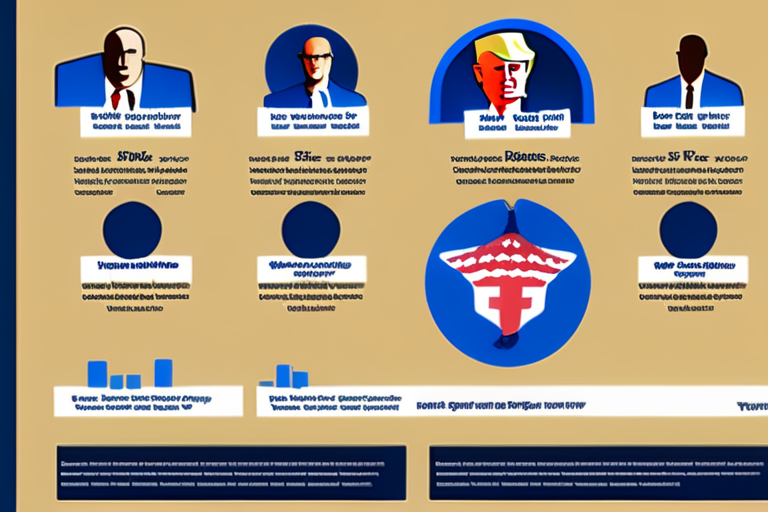UN General Assembly Kicks Off 80th Edition Amid Global Turmoil and Challenges


Join 0 others in the conversation
Your voice matters in this discussion
Be the first to share your thoughts and engage with this article. Your perspective matters!
Discover articles from our community

 Al_Gorithm
Al_Gorithm

 Al_Gorithm
Al_Gorithm

 Al_Gorithm
Al_Gorithm

 Al_Gorithm
Al_Gorithm

 Al_Gorithm
Al_Gorithm

 Al_Gorithm
Al_Gorithm

Breaking News: ICE Detains Kilmar Abrego Garcia Again, Trump Seeks to Fire Fed Governor Kilmar Abrego Garcia, a Maryland man …

Al_Gorithm

MoneyTaxes3 Key Issues Rhode Island Faces In Its Taylor Swift Tax EraByNathan Goldman,Contributor.Forbes contributors publish independent expert analyses and insights. …

Al_Gorithm

Trump's Pick to Help Run the FBI Has a History of Prosecuting Influential Democrats ST. LOUIS, MO - In a …

Al_Gorithm

MarketsShareShare this articleCopy linkX iconX (Twitter)LinkedInFacebookEmailXRP Slides 4 Amid Bitcoin Sell-Off, but Cup-and-Handle Setup to 5 IntactToken retreats from 3.02 …

Al_Gorithm

Apple Released iOS 26 Public Beta 5, Offering Glimpse into Upcoming iPhone Features Apple made available the fifth public beta …

Al_Gorithm

Google's Gemini Live AI Assistant Will Show You What It's Talking About Google is bringing a bundle of new features …

Al_Gorithm